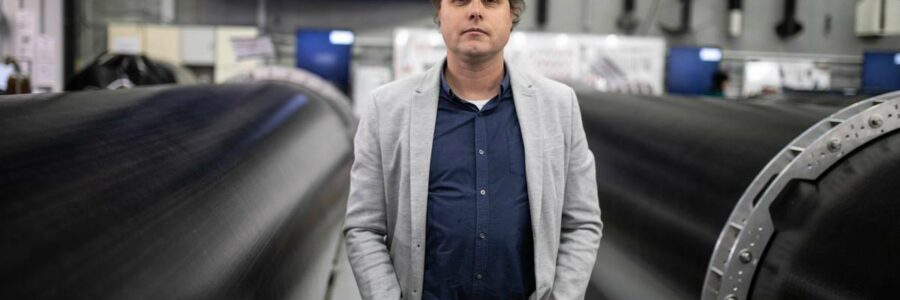
Rocket Lab confirms US$4.1b Nasdaq listing, larger rocket for human spaceflight
Kiwi-American company Rocket Lab, founded by Aucklander Peter Beck, has confirmed plans for a US stock exchange at a market cap of US$4.1 billion ($5.7b) during the second quarter.
US$470m will be raised from new investors with the listing, via a special purpose acquisition company (spac or shell company) called Vector.
Read More
- Peter Beck wants you: Rocket Lab seeks 90 more staff
- Nasa’s small step to the Moon a giant leap for Rocket Lab
The listed company any will have a cash balance of US$750m, Rocket Lab said in a statement.
Rocket Lab has made its name internationally by launching some 97 micro-satellites into space over 18 launches from Mahia over the past three years on its 12m tall Electron Rocket, which has a payload capacity of around 150kg.
Proceeds from the launch will be used to develop a much larger “medium-lift” rocket capable of taking an 8 ton (7200kg) payload into space.
The new rocket will be “tailored for mega constellations, deep space missions and human spaceflight”.
The new rocket will put Rocket Lab more closely in competition with Elon Musk’s privately-held Space X, which recently raised funds at a US$74b private equity valuation.
Current Rocket Lab investors will retain 82 per cent of shares after the listing.
Exact stakes haven’t been disclosed, but current investors include Beck – who servers as CEO, early investors Sir Stephen Tindall and Mark Rocket, and the investment wing of ACC, which put money in during a 2018 round US$140m raise at a US$1b private equity valuation.
And, on the US side, defence giant Lockheed Martin plus a clutch of Silicon Valley private equity firms including Khosla Ventures, Bessemer Venture Partners, and Data Collective.
The Australian government’s Future Fund participated in the US$140 fund and is said to today be one of Rocket Lab’s largest institutional investors – and in line for a $1b windfall with the Nasdaq listing. When Rocket Lab opened its Auckland assembly plant and Mission Control in 2018, a senior executive expressed regret that investment talks with NZ’s Super Fund had ultimately gone nowhere.
Rocket Lab is currently in the process of recruiting 90 more staff, which will take its full complement to around 700 – around two-thirds of whom are based in New Zealand.
Beck, who left school to become a Fisher & Paykel Appliances apprentice, founded Rocket Lab in 2006, with Mark Rocket joining him as an early backer.
The pair would later part ways after Rocket’s discomfort with the company’s US military contracts. The R&D money from US Department of Defense agency Darpa (Defense Advanced Research Projects Agency) and would go on to stage launches for the US Air Force and other Defense-related agencies.
Beck has always emphasised that his company has only launched research not operational satellites for US government clients, and that many defence technologies – such as the internet and GPS – have been dual use and of considerable public benefit.
This year, the company’s “Photon” satellite bus will be used to ferry a Nasa satellite into lunar orbit as part of the US space agency’s Capstone mission to return astronauts to the moon.
And Beck says a privately-funded mission will see a satellite sent to Venus in 2023 to investigate indications of phosphine in the planet’s upper atmosphere – a gas produced as a byproduct of organic life.
Also on the agenda is the first launch from Rocket Lab’s first launch complex outside of New Zealand – hosted at Nasa’s Wallops Island facility in the US state of Virginia.
Beck says certain US government clients demanded a US launch site, but that the bulk of Rocket Lab’s launches will always be from NZ – purely because our relatively empty skies and shipping lanes made it much easier to launch rockets at high frequency. His company’s near-term goal is a launch per fortnight.
2019 financials
On February 10 this year, Rocket Lab filed its financials for its 2019 financial year (which coincided with the calendar year).
They reveal an operation that was, at the time, breakeven.
The accounts show total revenue of $89.9m, up from 2018’s $46.3m.
Expenses also doubled to $93.9m from the prior year’s $47.6m.
After depreciation and other factors, Rocket Lab squeaked to a $32,000 profit.
Rocket Lab had six launches in 2019. It would go on to have seven in 2020 and, so far this year, has staged one, with a second in the offing.
In its listing statement today, the company said it projected revenue of US$750m by 2025.
Source: Read Full Article